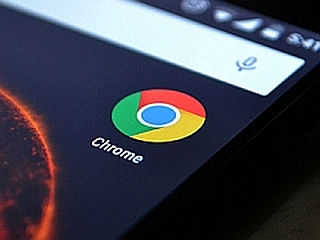- Home
- Mobiles
- Mobiles Opinion
- Apple Begins Ditching Bundled Chargers: Eco Friendly Move or Cynical Stinginess?
Apple Begins Ditching Bundled Chargers: Eco-Friendly Move or Cynical Stinginess?
While Apple will save money, it would be nice if the benefits were passed on to buyers

Chances are you have plenty of spare chargers, but will you find the right type when you need it?
Many companies bury or gloss over parts of announcements that are likely to invite criticism, but Apple specifically highlighted its decision to stop bundling chargers with its latest Apple Watch models when they were announced on Tuesday. The news was framed as part of the company's moves towards sustainability and eco-friendly packaging, and sure, those goals will be furthered by dropping bundled chargers. But does this argument hold up, or is it just cynical stinginess by a giant corporation?
Let's just be clear right at the outset – very few companies include mains adapters with small gadgets, including wearables. These typically have small batteries and charge quickly, or can be left somewhere overnight and don't need to be used urgently. Plenty of headphones, fitness trackers, speakers, household accessories, toys, and even small appliances use Micro-USB or USB Type-C ports for charging, specifically so that buyers can use the chargers they already have.
Do we need new chargers with every new product we buy? For many of us, the answer is no. I have the boxes that my last two iPhones came in – purchased in 2019 and 2017 – and both bundled chargers are still lying inside, untouched. I simply didn't need to take them out when I already had four or five in use. I have at least one by my bedside, at my desk, and in my bag already, with another few ready to grab whenever needed. I don't need an individual charger for each device.
That said, I wouldn't be happy if I couldn't use a brand new Apple Watch just because I don't have something to plug it into. Apple's current PCs all have USB Type-C ports and most of my chargers are Type-A. I might be covered, but I can imagine that others wouldn't be. PCs and laptops also typically allow relatively low power draw through their USB ports which might be fine for a watch but would quickly become frustrating and impractical for a phone or tablet. It's worth noting that the new iPads announced at the same event do still ship with chargers.
Of course it's hard not to see this as a precursor to more sweeping changes – rumours have swirled for months that the upcoming iPhone 12 series will ship without chargers, and that now seems more likely to be the case. This also doesn't seem to be a huge problem to me. Apple's bundled chargers have been awful for ages and I nearly always reach for a more powerful one that will charge my phone quicker.
Apple's measly 5W adapters just don't cut it anyway, especially since its phones can charge faster, so I often don't even bother carrying them. Chargers with multiple USB outputs are absolutely necessary in crowded pressrooms and ancient hotels without enough outlets for a laptop, 2-3 phones, wearables, cameras, and other equipment. Plus, I always like having fewer things to carry and remember packing.
Here's where the problem of charger interoperability comes up, though. The USB standard was of course meant to be universal – it's right there in the name – but manufacturers now routinely break the specification and push more and more power through the same ports and wires. 33W charging isn't uncommon in the budget space now, and we're even seeing 65W on affordable models, with prototypes capable of over 100W charging already being demonstrated.
Sadly, these are all proprietary standards. Neither the USB Power Delivery spec nor Qualcomm's QuickCharge spec cover these, and you'll still get the fastest charging (plus necessary safety mechanisms) from each company's proprietary chargers, which often aren't even the same between models. Apple might be okay with standard third-party chargers, but it's also allowing itself to be left behind in the charging speed race.
There's also been some amount of worry about the perils of using low-cost third-party chargers. Stories of exploding batteries and phones catching fire are rare, but not unheard of. Cheap chargers are nearly always blamed, and companies have long insisted on the use of official or at least certified accessories. With this kind of (at least partially justified) fearmongering, many users are understandably wary of using third-party chargers.
I would argue that Apple has been actively contributing to e-waste over the years by shipping lousy chargers that aren't useful, and so ditching them is a good move overall. However, the company could help mitigate the inconvenience by cutting prices – Rs. 1,700 for the 5W version and Rs. 2,900 for the 18W version is completely ridiculous.
I remember the very first Apple product I bought, a 40GB iPod Photo. The iPod itself was barely the size of a deck of cards, but the box was roughly 15cm cubed. It contained the iPod itself, a charger, earphones with extra foam covers, a dock, a case, FireWire and USB cables, a video output cable, and stickers. Opening the box was a delight; a consciously engineered part of the whole Apple experience – but this was the last model to ship with such a generous bundle.
Apple has since then constantly moved to smaller boxes with fewer accessories, cutting down on packaging and shipping costs. All of this does benefit the environment – smaller boxes mean more of them can be packed into each plane and truck, cutting down on fuel costs and emissions. The company's commitments to eco-friendly materials and manufacturing processes, not to mention renewable energy, are no joke. So I don't believe that ditching boxed chargers is purely a cynical money-grab, but I do think that Apple could make the transition easier and do more to smooth over the potential pain points its customers might have to deal with.
Is Android One holding back Nokia smartphones in India? We discussed this on Orbital, our weekly technology podcast, which you can subscribe to via Apple Podcasts, Google Podcasts, or RSS, download the episode, or just hit the play button below.
Get your daily dose of tech news, reviews, and insights, in under 80 characters on Gadgets 360 Turbo. Connect with fellow tech lovers on our Forum. Follow us on X, Facebook, WhatsApp, Threads and Google News for instant updates. Catch all the action on our YouTube channel.
Related Stories
- Samsung Galaxy Unpacked 2026
- iPhone 17 Pro Max
- ChatGPT
- iOS 26
- Laptop Under 50000
- Smartwatch Under 10000
- Apple Vision Pro
- Oneplus 12
- OnePlus Nord CE 3 Lite 5G
- iPhone 13
- Xiaomi 14 Pro
- Oppo Find N3
- Tecno Spark Go (2023)
- Realme V30
- Best Phones Under 25000
- Samsung Galaxy S24 Series
- Cryptocurrency
- iQoo 12
- Samsung Galaxy S24 Ultra
- Giottus
- Samsung Galaxy Z Flip 5
- Apple 'Scary Fast'
- Housefull 5
- GoPro Hero 12 Black Review
- Invincible Season 2
- JioGlass
- HD Ready TV
- Latest Mobile Phones
- Compare Phones
- Tecno Pova Curve 2 5G
- Lava Yuva Star 3
- Honor X6d
- OPPO K14x 5G
- Samsung Galaxy F70e 5G
- iQOO 15 Ultra
- OPPO A6v 5G
- OPPO A6i+ 5G
- Asus Vivobook 16 (M1605NAQ)
- Asus Vivobook 15 (2026)
- Brave Ark 2-in-1
- Black Shark Gaming Tablet
- boAt Chrome Iris
- HMD Watch P1
- Haier H5E Series
- Acerpure Nitro Z Series 100-inch QLED TV
- Asus ROG Ally
- Nintendo Switch Lite
- Haier 1.6 Ton 5 Star Inverter Split AC (HSU19G-MZAID5BN-INV)
- Haier 1.6 Ton 5 Star Inverter Split AC (HSU19G-MZAIM5BN-INV)







![[Partner Content] OPPO Reno15 Series: AI Portrait Camera, Popout and First Compact Reno](https://www.gadgets360.com/static/mobile/images/spacer.png)









